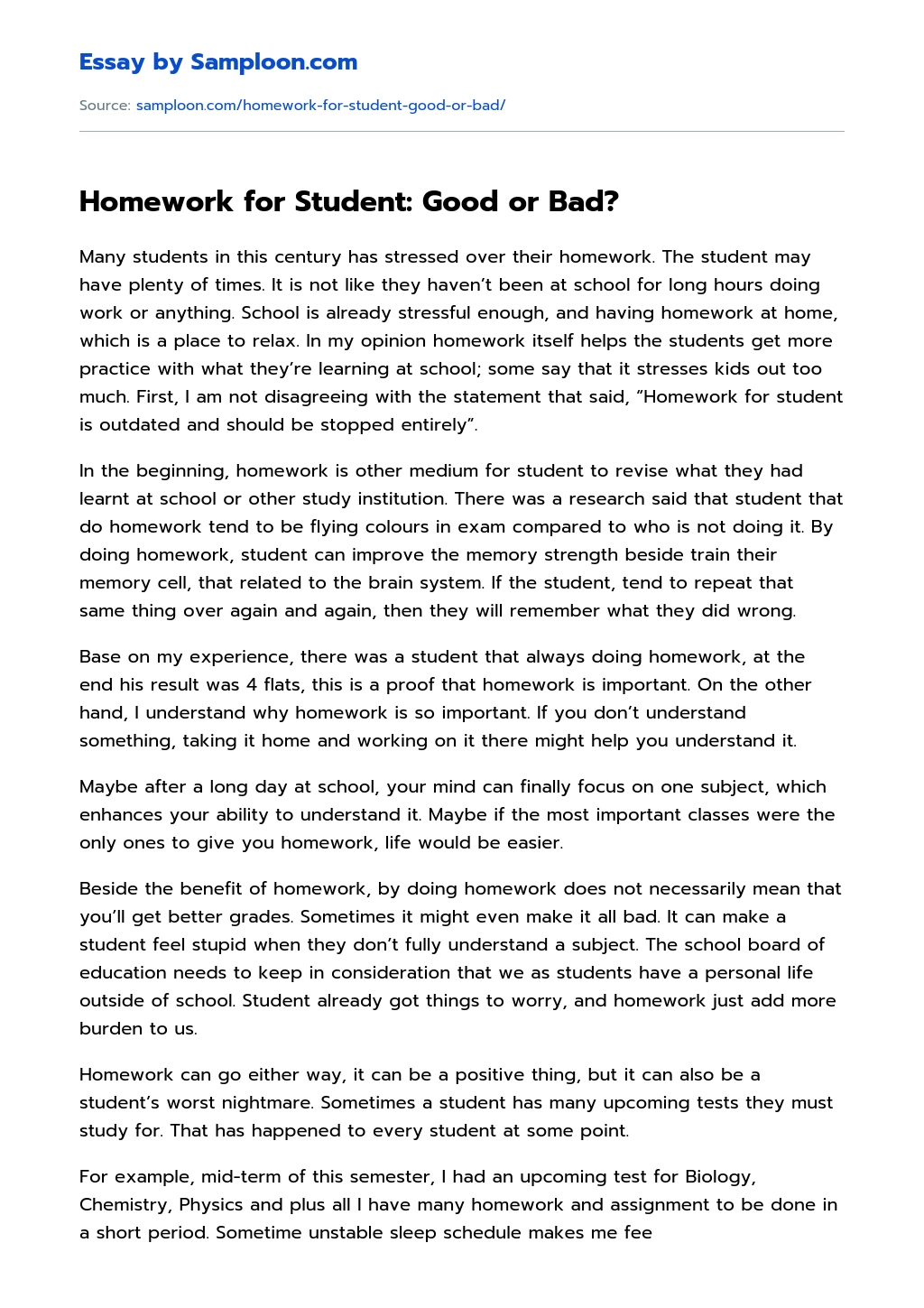Homework has long been a controversial topic in education. On one hand, proponents argue that homework helps to reinforce learning, promotes self-discipline, and encourages responsibility. On the other hand, opponents argue that homework can be overwhelming and stressful, can lead to cheating, and may not always be aligned with what is being learned in the classroom. So, is homework good or bad for students?
One argument in favor of homework is that it helps students to reinforce the skills and knowledge they have learned in class. When students complete homework assignments on their own, they have the opportunity to practice what they have learned and to apply their knowledge in new contexts. This can help to solidify their understanding of the material and make it more likely that they will retain the information over the long term.
Homework can also help students to develop self-discipline and responsibility. When students are given assignments to complete outside of class, they must manage their time and prioritize their tasks in order to meet deadlines. This can be challenging, especially for younger students who may not yet have developed strong self-regulation skills. However, with practice, students can learn to manage their time effectively and become more responsible and self-disciplined.
Another argument in favor of homework is that it can foster a sense of accomplishment and pride in students. When students complete assignments successfully, they can feel proud of their achievements and motivated to continue working hard. This sense of accomplishment can be especially important for students who struggle in school or who may not excel in other areas.
However, there are also valid arguments against homework. One concern is that homework can be overwhelming and stressful for students, especially if they are given large amounts of work or have difficulty understanding the material. This can lead to frustration, anxiety, and even burnout, which can negatively impact students' mental health and well-being.
Another concern is that homework can lead to cheating. When students feel overwhelmed or frustrated by assignments, they may be more likely to turn to cheating as a way to get the work done. This can undermine the integrity of the learning process and may not provide students with the skills and knowledge they need to succeed in the long run.
Finally, some critics argue that homework may not always be aligned with what is being learned in the classroom. This can lead to confusion and frustration for students, who may be expected to complete assignments that they do not fully understand.
In conclusion, homework can be both good and bad for students, depending on the circumstances. While it can help to reinforce learning and promote self-discipline and responsibility, it can also be overwhelming and stressful, and may not always be well-aligned with what is being learned in the classroom. As such, it is important for educators to carefully consider the benefits and drawbacks of homework and to use it in a way that is appropriate for their students.







